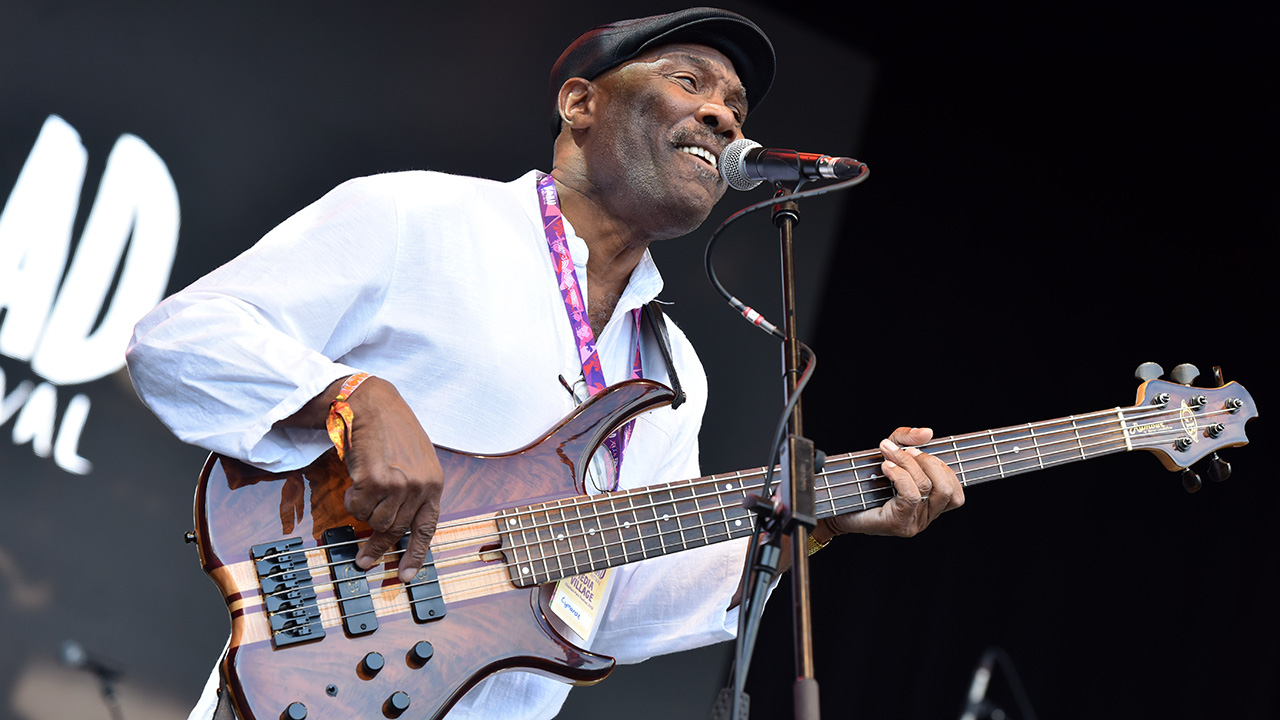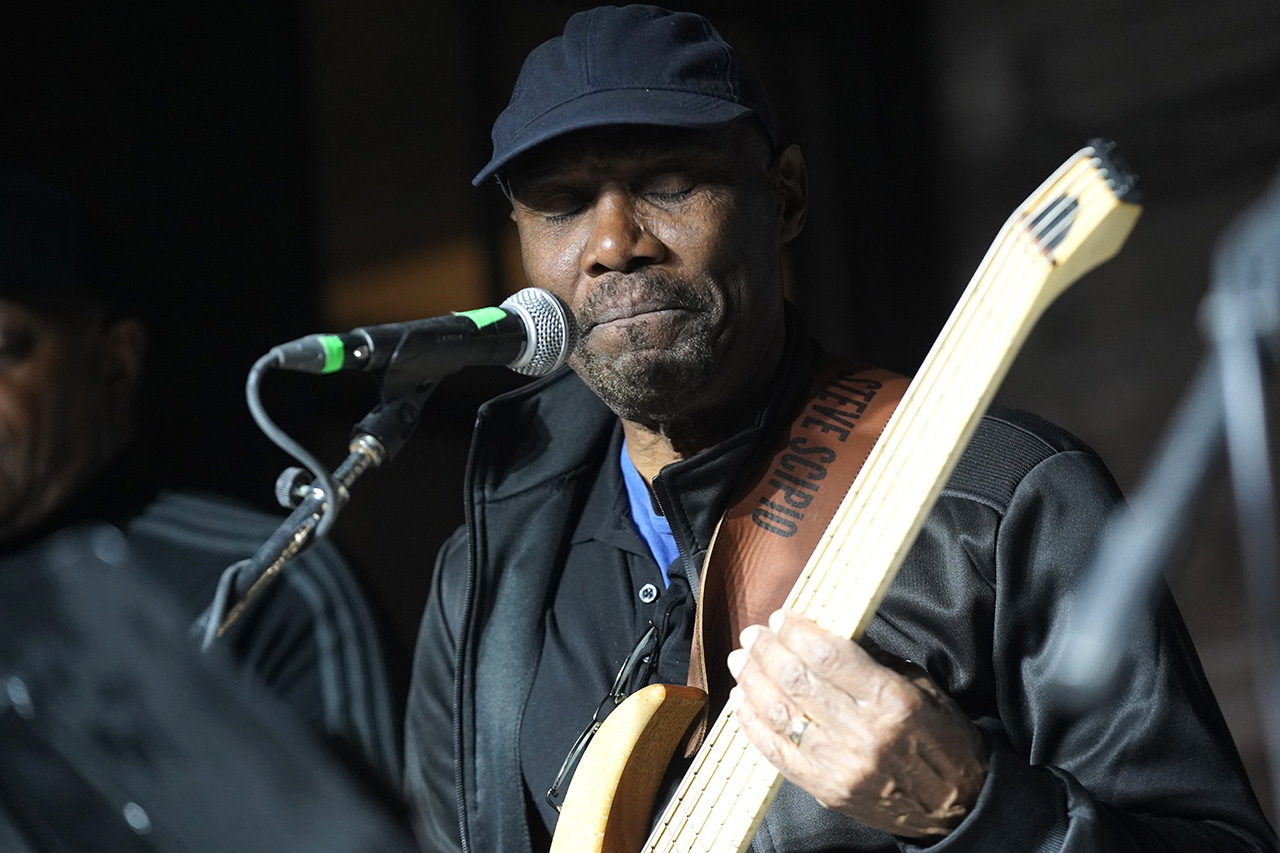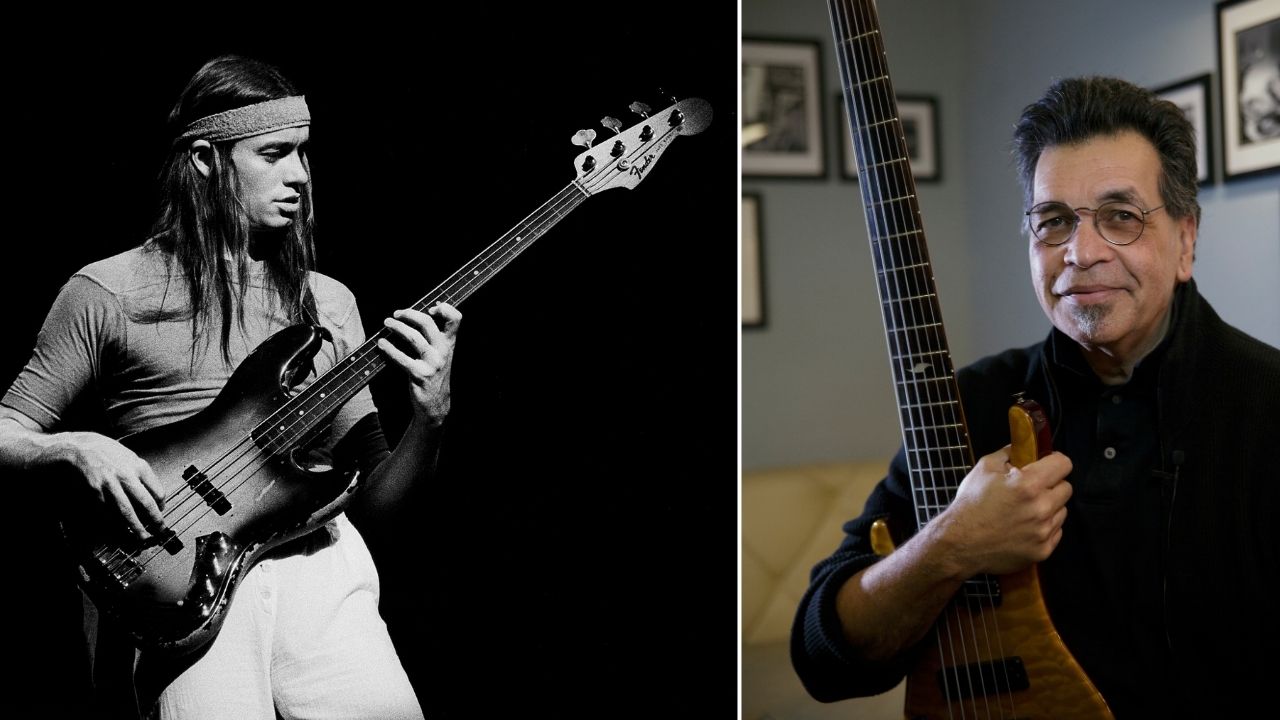“We have no problem with sampling. If it hadn’t been for that you probably wouldn’t be interviewing us today”: Cymande bassist Steve Scipio on how the funk pioneers were almost buried before crate diggers like De La Soul and the Fugees brought them back
Ahead of a brand-new album, Scipio reveals what he’s kept and what he’s changed over 50 years of playing bass – and why he still only needs one pedal

Before hip-hop MCs and vinyl-loving cratediggers got a hold of Cymande’s first two albums, the band had been buried under the sands of obscurity.
The British psychedelic funk outfit released their self-titled debut in 1972 and Second Time Around the following year. Then in the early ‘80s, DJs Kool Herc and Grandmaster Flash deconstructed the music for backbeats. In 1989 De La Soul had sampled Cymande on 3 Feet High and Rising; and in the ‘90s EPMD, The KLF, MC Solaar and Heavy D were all doing the same.
Notoriously, The Fugees used an unauthorized sample of Cymande’s Dove on 1996’s The Score, leading to founding bassist Steve Scipio and guitarist Patrick Patterson launching a copyright suit. Despite the negativity, in the blink of an eye their band mattered again – more so than they had in their early days.
Scipio sees it as water under the bridge. “We have no problem with sampling the music,” he says. “If it hadn’t been for that you probably wouldn’t be interviewing us today. It’s an important part of the Cymande story – it’s given us a lot of recognition.”
Since then the good times have kept on rolling. A documentary, Getting It Back: The Story of Cymande, made waves in 2022. They’ll release new album Renascence next year. “I’m very proud that we desired to create original music,” Scipio says. “And we’ve been recognized for it.
“The perception about this music coming out of the United Kingdom, particularly in those days, was that it was not original, an accident, or had no legs to sustain itself. Cymande told a different story – and we’re bringing it all back again.”
What’s the story with Renascence?
All the latest guitar news, interviews, lessons, reviews, deals and more, direct to your inbox!
“We have material not recorded in the ‘70s that we always liked to revisit from time to time. Sweden, One of the tracks on the album was from a demo that we’d done in the late ‘70s.”
Do you find it easy to pick up where you left off with tracks from 40 or 50 years ago?
“It’s easier for us to continue with our kind of music. But there is a slight change – there’s a little evolution in our playing styles, which you hear the single, Chasing an Empty Dream. The fact that our approahj has always been original means the music has maintained certain characteristics, even in the new material.”
What are the building blocks of your bass style?
The one pedal I use is really just to enhance the higher frequencies; it’s easy for the bass to get too busy and lost
“You’ll find the style I used on the three albums that are already out there has a lot of syncopation. That’s continued to some extent. Now, I try to complement the melodic side of the song, especially the horns. I also use the bass to complement the melodic structure of our vocals in some parts.”
There still seems to be plenty of syncopation.
“I still utilize a lot of that. And I’m now using a five-string bass, whereas before I used a four-string.”
What other gear are you using?
“When we’re doing live shows I tend to use a Markbass amp and speaker combination. I’m not into heavy use of pedals – I try to rely more on the tone of the bass and the amps themselves.

“The one pedal I use is really just to enhance the higher frequencies; it’s easy for the bass to get too busy and lost. Also there’s the issue of distortion.”
Listening to your ‘70s records, the rhythmic relationship between your bass and Patrick’s guitar is undeniable. What’s the secret sauce?
“In the structure of the Cymande of the ‘70s, the bass was very prominent. It was used almost not just as a bass, but also percussively and rhythmically. The bass and the guitar were the only two instruments; everything else was horns, drums and vocals.
“Now the approach has got to be a little different. We’ve got a great keyboard and piano player. The approach is to utilize the keys.”
Is there a song from Renascence that you feel particularly happy with?
“The band’s music is eclectic; no one song identifies our space at the moment. I prefer to approach it by putting one of the songs at the center; that would be Coltrane.
“It’s an appreciation of the music we do and the quality of musicianship that’s propelled us. Coltrane is a really great song, but the songs have their own identity, and I love them all. This album is a fantastic collection of songs.”
After Cymande disbanded in the ‘70s, cratediggers got hold of your records and sampled them, which played a huge part in launching hip-hop. Where would Cymande be if not for that?
“There was a whole period of non-recognition for us in the UK and the US. Then a convergence of things meant that Patrick and I took a break in ’75.
“The whole history with hip-hop – and right up to the album we’re doing now – is really a testament to what we’re trying to achieve. The recognition of what we’ve done and the impact of our role in the musical sphere has been incredible.”
- Renascence is available for pre-order now.
Andrew Daly is an iced-coffee-addicted, oddball Telecaster-playing, alfredo pasta-loving journalist from Long Island, NY, who, in addition to being a contributing writer for Guitar World, scribes for Bass Player, Guitar Player, Guitarist, and MusicRadar. Andrew has interviewed favorites like Ace Frehley, Johnny Marr, Vito Bratta, Bruce Kulick, Joe Perry, Brad Whitford, Tom Morello, Rich Robinson, and Paul Stanley, while his all-time favorite (rhythm player), Keith Richards, continues to elude him.



